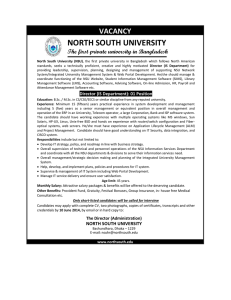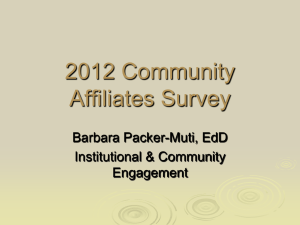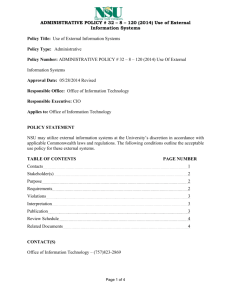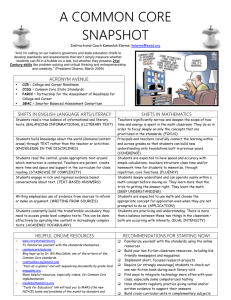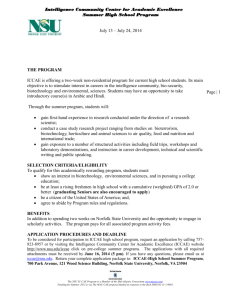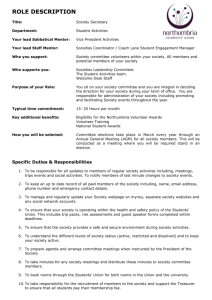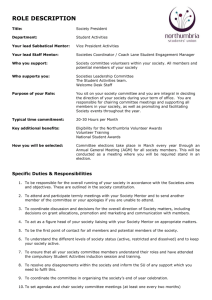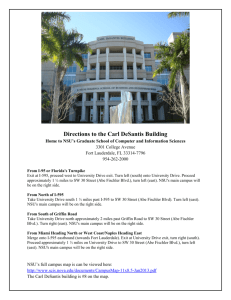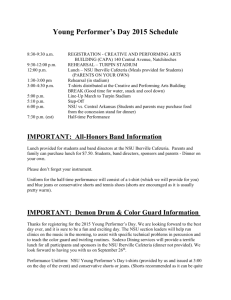ACADEMIC WRITING Master Course (1st year) MEP “Oil and Gas
advertisement
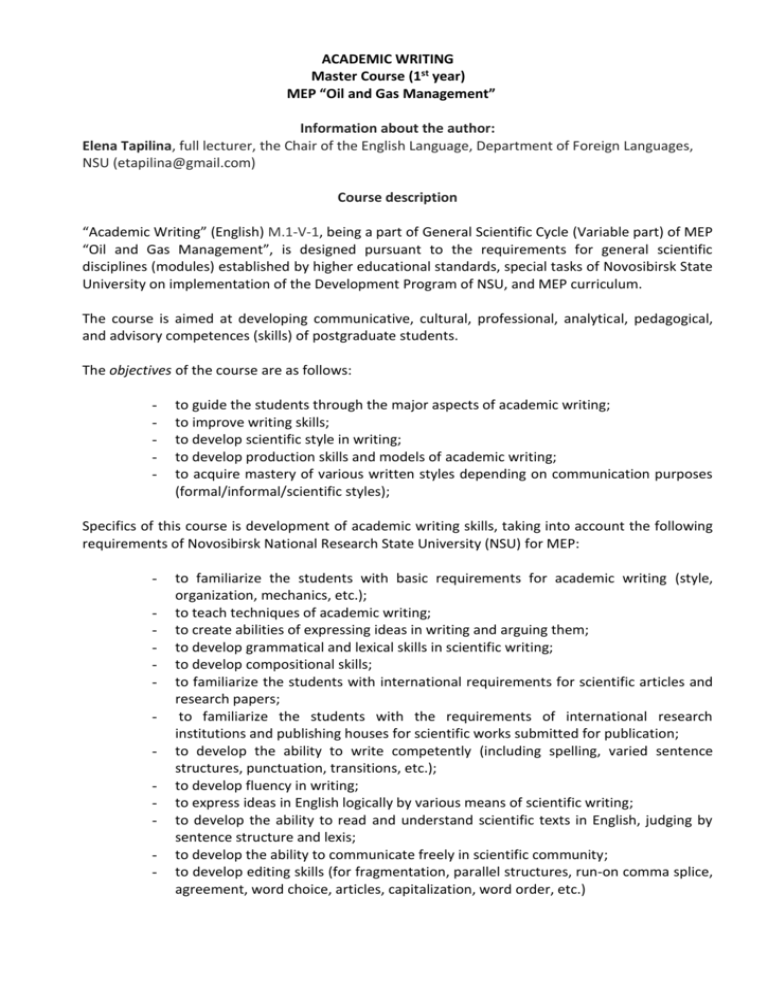
ACADEMIC WRITING Master Course (1st year) MEP “Oil and Gas Management” Information about the author: Elena Tapilina, full lecturer, the Chair of the English Language, Department of Foreign Languages, NSU (etapilina@gmail.com) Course description “Academic Writing” (English) M.1-V-1, being a part of General Scientific Cycle (Variable part) of MEP “Oil and Gas Management”, is designed pursuant to the requirements for general scientific disciplines (modules) established by higher educational standards, special tasks of Novosibirsk State University on implementation of the Development Program of NSU, and MEP curriculum. The course is aimed at developing communicative, cultural, professional, analytical, pedagogical, and advisory competences (skills) of postgraduate students. The objectives of the course are as follows: - to guide the students through the major aspects of academic writing; to improve writing skills; to develop scientific style in writing; to develop production skills and models of academic writing; to acquire mastery of various written styles depending on communication purposes (formal/informal/scientific styles); Specifics of this course is development of academic writing skills, taking into account the following requirements of Novosibirsk National Research State University (NSU) for MEP: - to familiarize the students with basic requirements for academic writing (style, organization, mechanics, etc.); to teach techniques of academic writing; to create abilities of expressing ideas in writing and arguing them; to develop grammatical and lexical skills in scientific writing; to develop compositional skills; to familiarize the students with international requirements for scientific articles and research papers; to familiarize the students with the requirements of international research institutions and publishing houses for scientific works submitted for publication; to develop the ability to write competently (including spelling, varied sentence structures, punctuation, transitions, etc.); to develop fluency in writing; to express ideas in English logically by various means of scientific writing; to develop the ability to read and understand scientific texts in English, judging by sentence structure and lexis; to develop the ability to communicate freely in scientific community; to develop editing skills (for fragmentation, parallel structures, run-on comma splice, agreement, word choice, articles, capitalization, word order, etc.) Learning outcomes of the course At the end of the course, postgraduates are expected to: be aware of characteristic features of academic writing in English; technical aspects of scientific written/oral communication; international requirements for scientific publications; organizational structure of various types of scientific research papers; know grammatical features of scientific written/oral communication in English; lexical features of scientific texts, including written speech patterns in English; varied sentence structures typical of academic writing; techniques of argumentative writing; be able to write, edit and document a scientific written paper in compliance with international requirements for a research paper; use varied sentence structure in academic writing; make comparative (typological analysis) of the English and Russian sentences, as well as to apply analytical lexical-grammatical knowledge to practice; reveal subtle differences of written and oral scientific language (scientific article vs oral presentation); communicate spontaneously on professional topics in both dialogic and polylogic situations; read fluently and comprehend easily scientific texts in English (synthesize and analyze the content); write fluently (to formulate written statements/texts in the English language); think critically and creatively (to think of and integrate diverse ideas, i.e. analyze, synthesize, and adequately formulate them in writing). Course content: o o o o o o o o o o o Introduction to the major aspects of academic writing: style, organization, editing, etc.; Comparative analysis of formal and informal writing styles; Specifics of academic writing; Common sentence structures; Guidelines for combining sentences; Specific grammatical structures; Specific lexis of academic writing; Paragraph development; Argumentative writing; Stages of academic writing: planning, outlining, drafting, revising, editing (for style and mechanics), acknowledging the sources, etc. Academic integrity and implementation of prescribed documentation standards. Labor content: 5 credits, 180 hours: 72 classroom hours; 108 self-study hours. Method of assessment I Semester - credit: Written grammar Test II Semester - exam: Research Paper in English (writing and defense) 1. 2. 3. 4. 5. 6. Basic literature: Subject “A” examination, University of California, NSU, 1992; Effective Academic writing, Oxford University Press, Alice Savage, Patricia Mayer, Masoud Shafiei, Rhonda Liss, and Jason Davis, 2010 Editing Tips for Effective Writing, Walter McDougall Introduction of Academic writing, Ryzkina O.A., NSU 1980; CSU Learning Skills: your link to success by Stewart McKinney http://www.csu.edu.au/division/studserv/learning © 2008 Self-help Resources at:http://www.csu.edu.au/division/studserv/learning/student_resources
